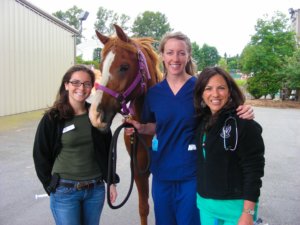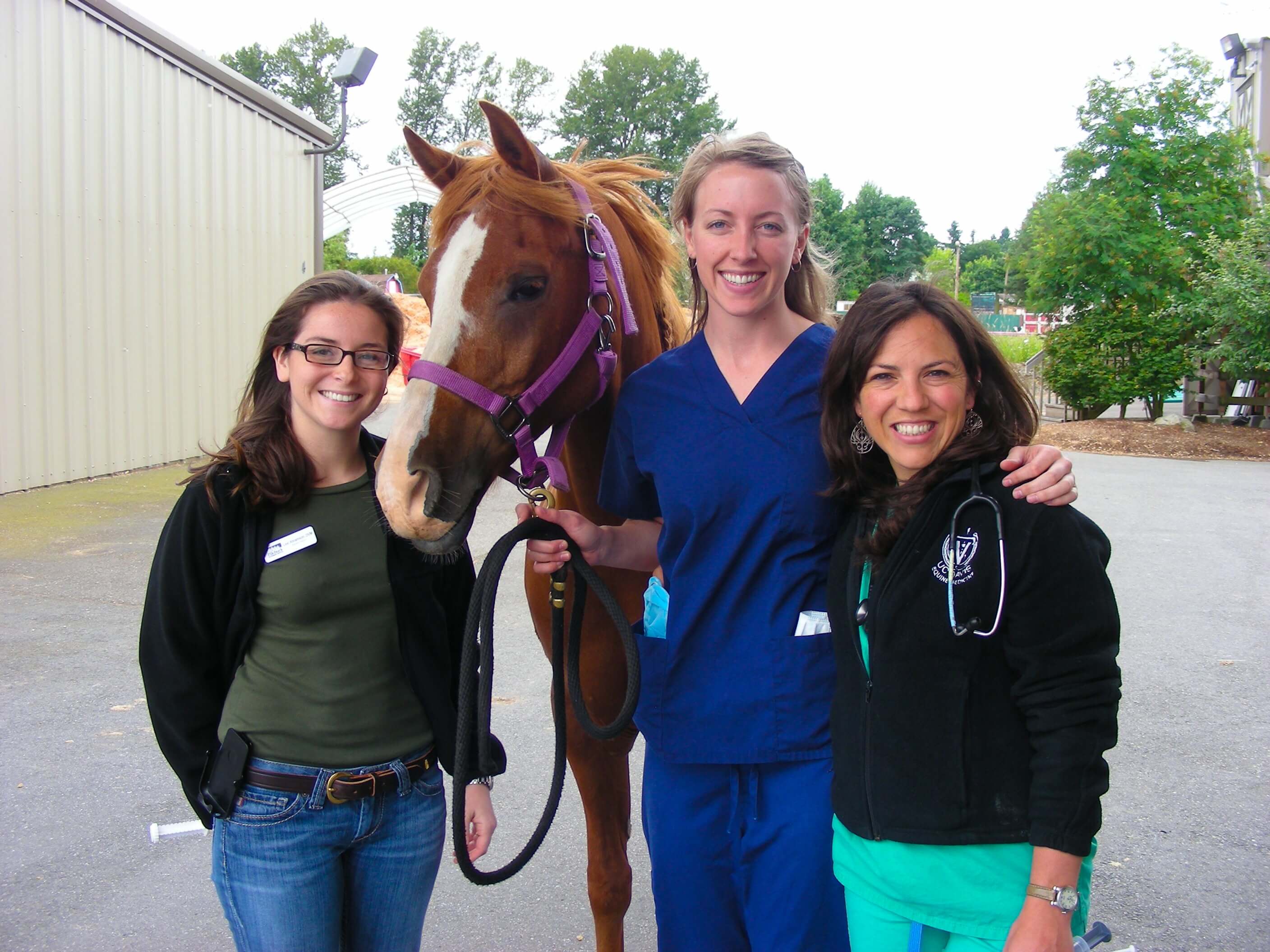Basic Guidelines for Horses at Home and on the Road
by Alexandra Abramson-Mooney, DVM, Ragan Garrett, DVM and Crystal Williams, DVM
A good immunization program is a critical component of an equine health maintenance program and is essential to responsible horse ownership. Updated strategies for vaccinating horses are maintained through the American Association of Equine Practitioners (AAEP) website: www.aaep.org. This provides information about diseases, available vaccines, their safety and effectiveness, why they are recommended, as well as how often they should be given. The AAEP has divided vaccinations into two categories: core vaccines and risk-based vaccines. Core vaccinations have clearly demonstrated efficacy and safety and vaccinate against diseases that are of relatively high risk to your horse regardless of their exposure to other horses. The use of these vaccinations is justified in the majority of patients, even a backyard pet that never leaves the farm. In contrast, risk-based vaccines are recommended depending on an individual’s risk of exposure to the respective disease.
Core Vaccines
Tetanus (“Lockjaw”) – Caused by the toxin-producing bacterium, Clostridium tetani. This organism lives in the environment and can invade the body through a puncture wound, open cut, surgical incision, umbilical cord, or through the reproductive tract of postpartum mares and can be fatal unless treated. After the initial vaccination series, Tetanus is boostered annually. Consult your veterinarian to revaccinate your horse immediately if they sustain a wound or undergo surgery six months or more after their last tetanus shot.
Encephalomyelitis (“Sleeping sickness”) – Eastern Equine Encephalomyelitis (EEE), Western Equine Encephalomyelitis (WEE), and West Nile Virus (WNV) are core vaccines. (Venezuelan Equine Encephalomyelitis (VEE) is not core, because it is currently more prevalent in South America). These viruses are transmitted to horses by mosquitoes, which have acquired the virus from birds and rodents. The vaccines are usually given in the spring, approximately one month before mosquitoes are active. In areas where mosquitoes thrive all year, such as Florida, the vaccines are given more often.
Rabies – A fatal neurological disease that is transmissible to humans. This disease is caused by the bite of an infected animal and raccoons, foxes, bats, and skunks are often a source of transmission. The risk of exposure is variable based on geographic location but the disease is invariably fatal and therefore is considered a core vaccine. This vaccination must be administered by a veterinarian.
Risked Based Vaccines
Beyond these core vaccines, many other vaccinations are available depending on specific needs. Environment, travel, age, gender, intended use, and requirements of the competition venue should all be considered.
If your horse travels or mingles with other horses, consider vaccinating for EHV and Equine Influenza. Botulism and Rotavirus are more commonly a concern in foals rather than adult horses. Equine viral arteritis (EVA) is often a subclinical problem but causes abortion and neonatal death. Breeding stallions can become carriers and vaccination is recommended for some stallions. Strangles is a highly contagious bacterial disease spread by direct contact with an infected horse’s nasal secretions or transmission from contaminated equipment, tack, or your hands.
|
Key Points |
|
Core vaccinations:
Risk Based vaccinations:
|
There are various products on the market and it can be confusing to tailor your own program. It is important to weigh the pros and cons with your veterinarian to help decide what is best for your horse and your situation. Remember to vaccinate a healthy horse and that vaccinations do not guarantee 100% protection from disease. However, prevention is less expensive than treating disease. Although the AAEP has a list of “recommended” vaccines, each horse’s situation is unique. Therefore, work with your veterinarian to develop a vaccination program that will provide the most benefit for you and your horse.

All three authors are equine surgery and medicine interns currently working at Pilchuck Veterinary Hospital. Dr. Abramson joins our team all the way from Florida where she grew up riding hunter/jumper horses competitively in the southeast region. She received her Bachelor of Science degree from Cornell University in 2007 where she graduated with honors and a distinction in research. Dr. Garrett is from Bend, Oregon where she grew up riding hunter/jumper horses and trail riding every summer with her dad. She completed both her Bachelor of Science and Veterinary Medicine degrees at Oregon State University. Dr. Williams grew up in southern California and has spent the last nine years in Davis, California. She received her undergraduate degree in Biological Sciences at UC Davis and worked in the Large Animal Intensive Care Unit at UC Davis School of Veterinary Medicine before entering vet school. She also spent six months working at an equine intensive care unit during the thoroughbred foaling season in Australia. www.pilchuckvet.com.
Published February 2012 Issue

The Northwest Horse Source is an independently owned and operated print and online magazine for horse owners and enthusiasts of all breeds and disciplines in the Pacific Northwest. Our contemporary editorial columns are predominantly written by experts in the region, covering the care, training, keeping and enjoyment of horses, with an eye to the specific concerns in our region.





